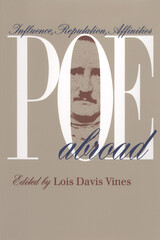
This book offers concrete and practical ideas for implementing content-based instruction—using subject matter rather than grammar—through eleven case studies of cutting-edge models in a broad variety of languages, academic settings, and levels of proficiency.
The highly innovative models illustrate content-based instruction programs for both commonly and less-commonly taught languages—Arabic, Croatian, French, German, Indonesian, Italian, Russian, Serbian, and Spanish—and for proficiency levels ranging from beginners to fluent speakers. They include single-teacher and multi-teacher contexts and such settings as typical language department classrooms, specialty schools, intensive language programs, and university programs in foreign languages across the curriculum.
All of the contributors are pioneers and practitioners of content-based instruction, and the methods they present are based on actual classroom experiences. Each describes the rationale, curriculum design, materials, and evaluation procedures used in an actual curriculum and discusses the implications of the approach for adult language acquisition.


In Poe Abroad, Lois Vines has brought together a collection of essays that document the American writer's influence on the diverse literatures—and writers—of the world. Over twenty scholars demonstrate how and why Poe has significantly influenced many of the major literary figures of the last 150 years.
Part One includes studies of Poe's popularity among general readers, his influence on literary movements, and his reputation as a poet, fiction writer, and literary critic. Part Two presents analyses of the role Poe played in the literary development of specific writers representing many different cultures.
Poe Abroad commemorates the 150th anniversary of Poe's death and celebrates his worldwide impact, beginning with the first literal translation of Poe into a foreign language, “The Gold-Bug”into French in 1845. Charles Baudelaire translated another Poe tale in 1848 and four years later wrote an essay that would make Poe a well-known author in Europe even before he achieved recognition in America.
Poe died knowing only that some of his stories had been translated into French. He probably never would have imagined that his work would be admired and imitated as far away as Japan, China, and India or would have a lasting influence on writers such as Baudelaire, August Strindberg, Franz Kafka, Jorge Luis Borges, Julio Cortázar, and Tanizaki Junichiro.
As we approach the sesquicentennial of his death, Poe Abroad brings together a timely one-volume assessment of Poe's influence throughout the world.
READERS
Browse our collection.
PUBLISHERS
See BiblioVault's publisher services.
STUDENT SERVICES
Files for college accessibility offices.
UChicago Accessibility Resources
home | accessibility | search | about | contact us
BiblioVault ® 2001 - 2024
The University of Chicago Press









